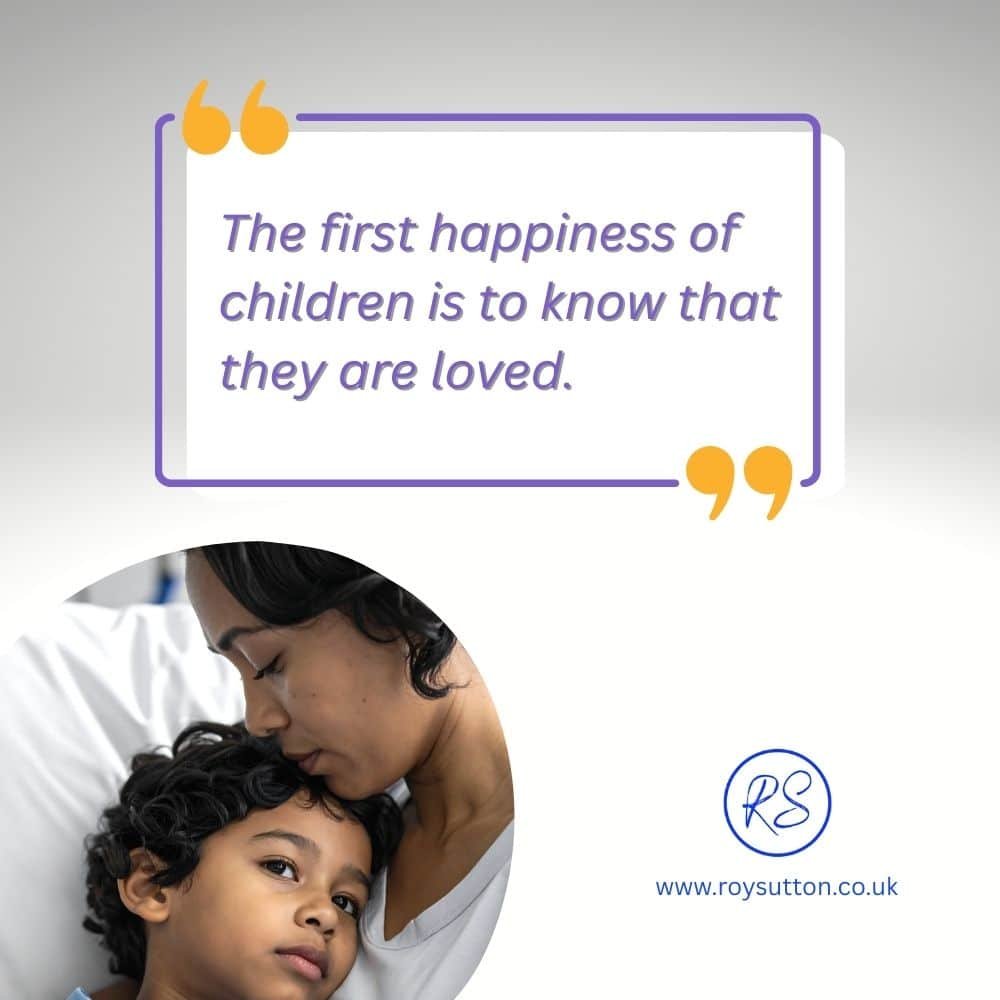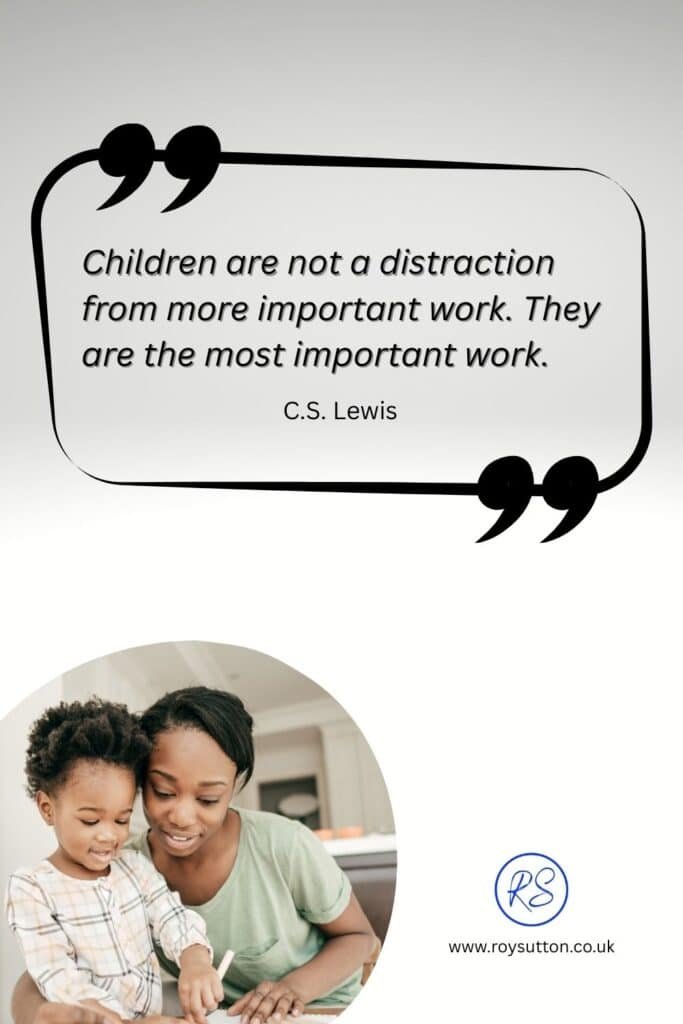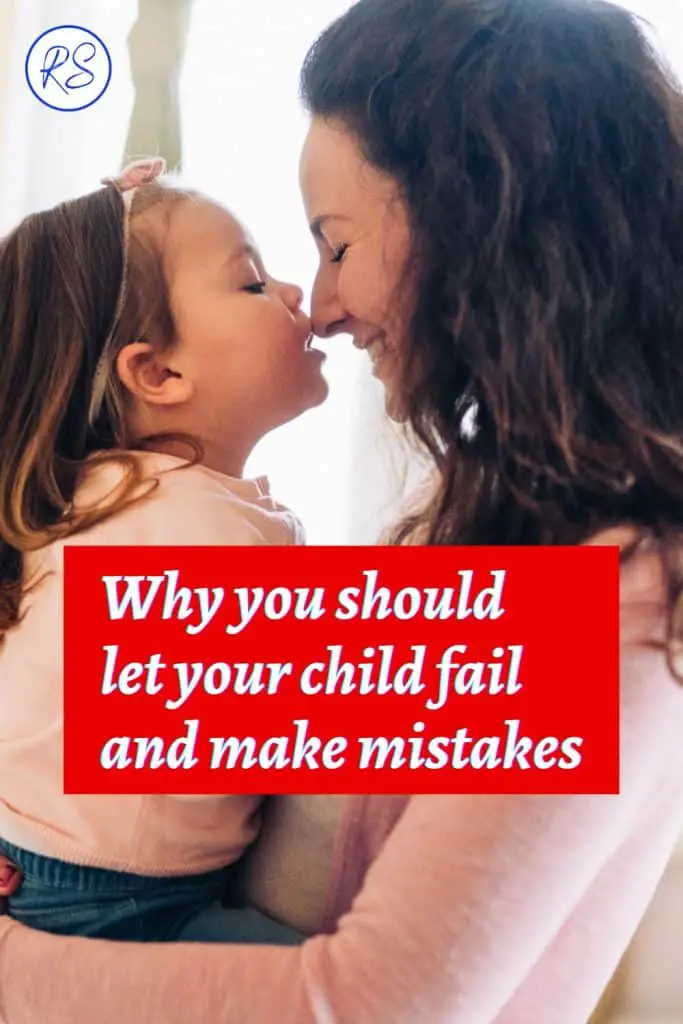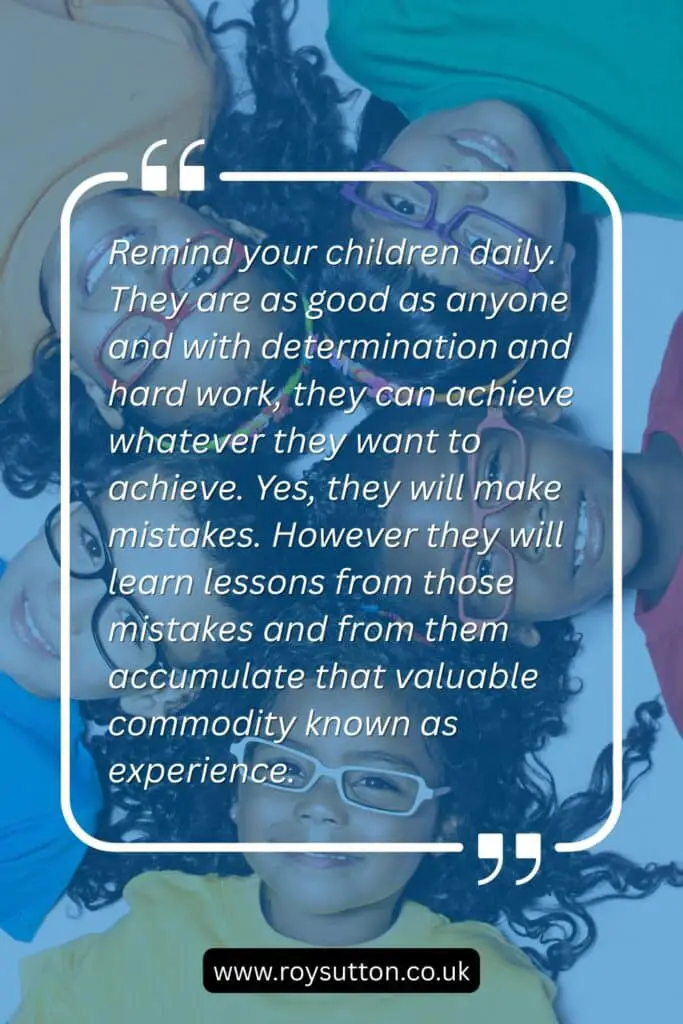
Today, let’s explore some inspirational quotes about parenting.
Can there possibly be any activity in life that is more important than parenting? I don’t think so.
Yet it is often undervalued in the modern age, or so it seems. Children are the future, so surely they should be our priority?
Far too many people seem to regard parenting as an inconvenience to fit in around careers, lifestyles, and a burning desire for personal fulfilment.
It’s increasingly common to see young children accompanying adults on crowded commuter trains far too early in the morning, as parents rush to deposit them at a nursery or with a childminder before the working day begins.
These little people will be the next generation. They’re the people who will carry the baton forward to build a better tomorrow, so how they’re brought up matters greatly, particularly in those all-important preschool years, which are critical to their development.

Make your children your priority:
Is it such a good idea to leave them with someone who couldn’t possibly have their best interests at heart in the way that every parent should? You can decide for yourself, dear reader, but I must say, I doubt it.
I think that children, once we have them, should always be our priority over everything else.
Their best interests should always take precedence, surely? That’s easier said than done, I know, and inevitably there must be some balance and compromise, of course.
However, there’s no more important job than being a parent, and there’s no greater satisfaction than seeing that little bundle of joy turn into a decent, civilized, and well-adjusted adult.
I have had many fine experiences in my life, but being a parent has been the best of them all.
It hasn’t been easy, and I’ve made plenty of mistakes along the way. However, the rewards have been well worth any sacrifices I’ve had to make.
Our children are our legacy:
Let us not forget that our children are the real legacy we give to the world. They’re the gift that will keep on giving if only in terms of their contributions to society throughout their lifetime.
Here are seven inspirational quotes about parenting to help you reflect on the importance of being a parent.
Quotes about parenting:
- When you hold your baby in your arms the first time and you think of all the things you can say and do to influence him [or her], it’s a tremendous responsibility. What you do with him [or her] can influence not only him [or her] but everyone he [or she] meets and not for a day or a month or a year but for time and eternity. ~Rose Kennedy
- To be a good father and mother requires that the parents defer many of their own needs and desires in favour of the needs of their children. As a consequence of this sacrifice, conscientious parents develop a nobility of character and learn to put into practice the selfless truths taught by the Savior himself. ~James E. Faust
- Every word, facial expression, gesture, or action on the part of a parent gives the child some message about self-worth. It is sad that so many parents don’t realize what messages they are sending. ~Virginia Satir
- There are times as a parent when you realize that your job is not to be the parent you always imagined you’d be, the parent you always wished you had. Your job is to be the parent your child needs, given the particulars of his or her own life and nature. ~Ayelet Waldman
- At the end of the day, the most overwhelming key to a child’s success is the positive involvement of parents. ~Jane D. Hull
- Don’t worry that children never listen to you; worry that they are always watching you. ~Robert Fulghum
- It is easier to build strong children than to repair broken men [or women]. ~Frederick Douglass

Please share these quotes with your friends:
If you found these quotes about parenting inspiring and interesting, then please share this post on social media with your friends.
When you share, everyone wins.
So go on, please share this post now. If you do, I’ll be forever grateful, and you’ll be helping a keen blogger reach a wider audience.
Thank you.
Other articles that might appeal to you:
- 7 inspirational quotes about religion to get you thinking
- 30 funny dating profile examples or how not to write one
- 25 brilliant one-liner quotes guaranteed to raise a smile
- 5 short funny stories for adults that’ll raise a smile
- 21 best puns ever and guaranteed to make you smile
- 20 classic Elaine Benes quotes that’ll raise a smile or two
- 15 memorable Cosmo Kramer quotes to brighten your day
- 15 George Costanza quotes that’ll make you smile
- 19 Best Homer Simpson quotes that’ll make you smile
- 25 corny puns that’ll make you smile or make you cringe
- 3 funny jokes to tell your friends and make them smile
- 31 great quotes from Larry David in Curb Your Enthusiasm
- 21 Del Boy quotes fans of Only Fools and Horses will love
- 15 amusing quotes by Jerry Seinfeld to brighten your day
- 21 witty short jokes to tickle you and brighten your day
- 21 very corny jokes that will cheer you up guaranteed
- 3 funny can’t stop laughing jokes you’ll love
- 5 short story jokes guaranteed to make you laugh
© Mann Island Media Limited 2026. All rights reserved.









